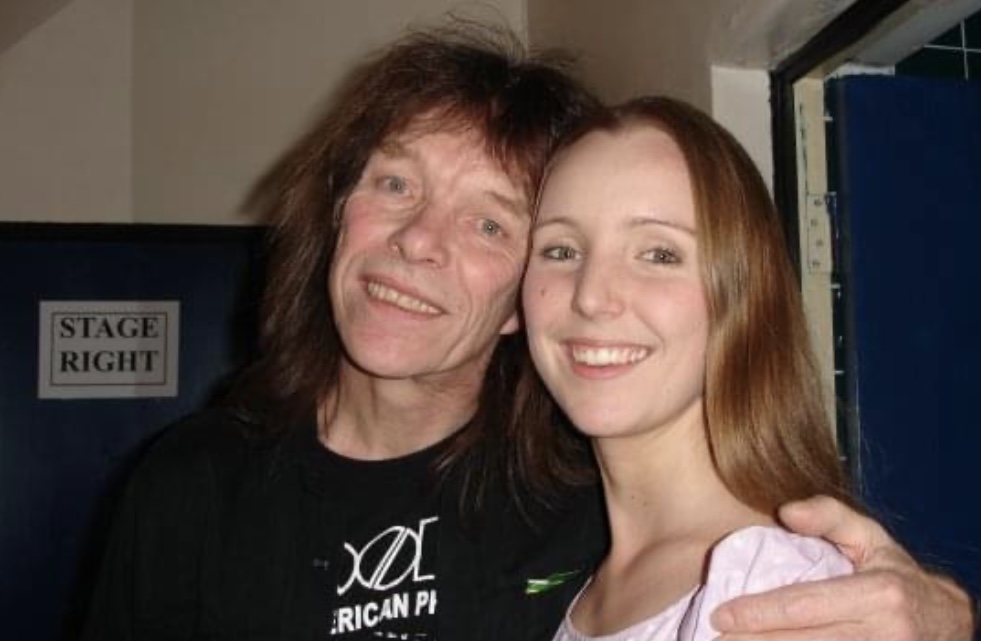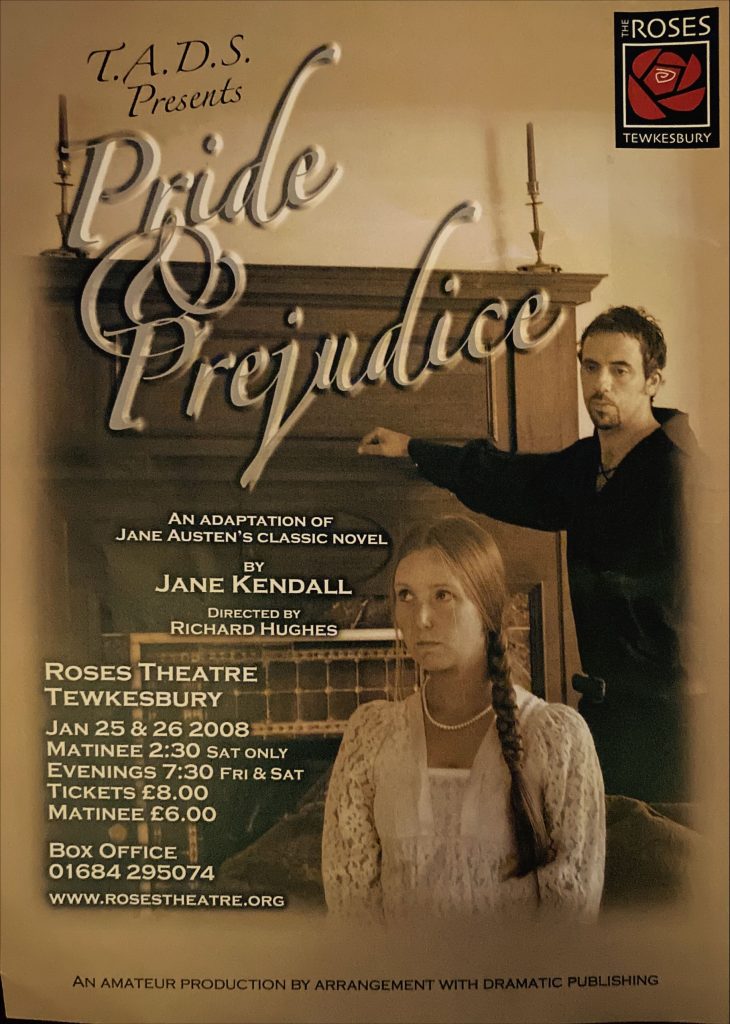
Jane Kendall’s adaptation of Jane Austen’s book, directed by Richard Hughes.

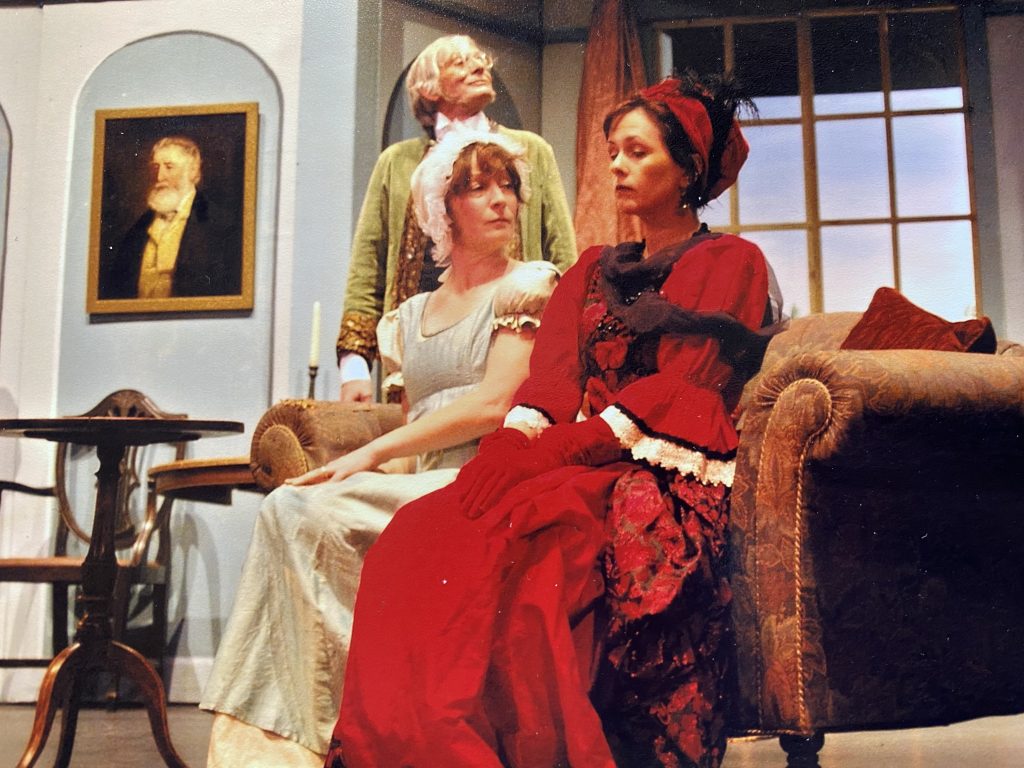
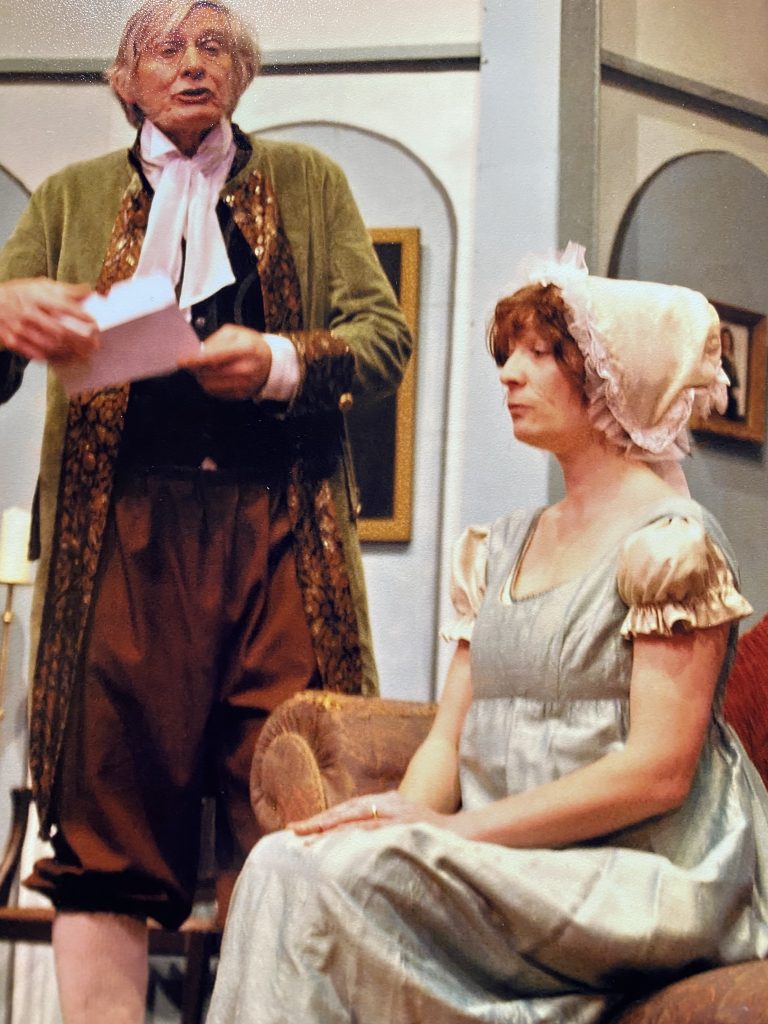
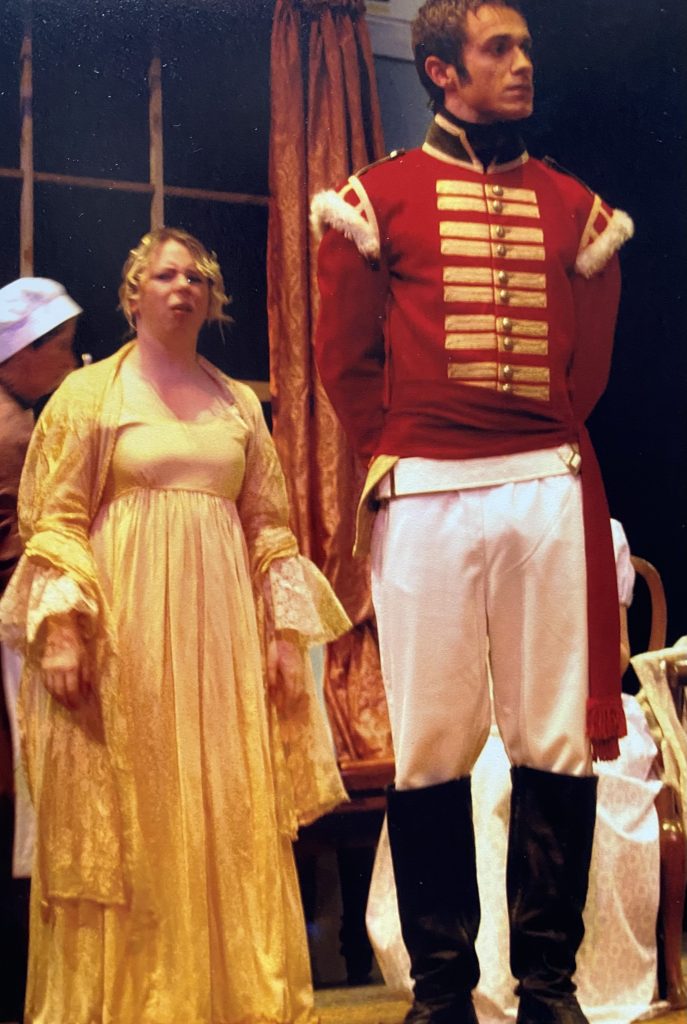
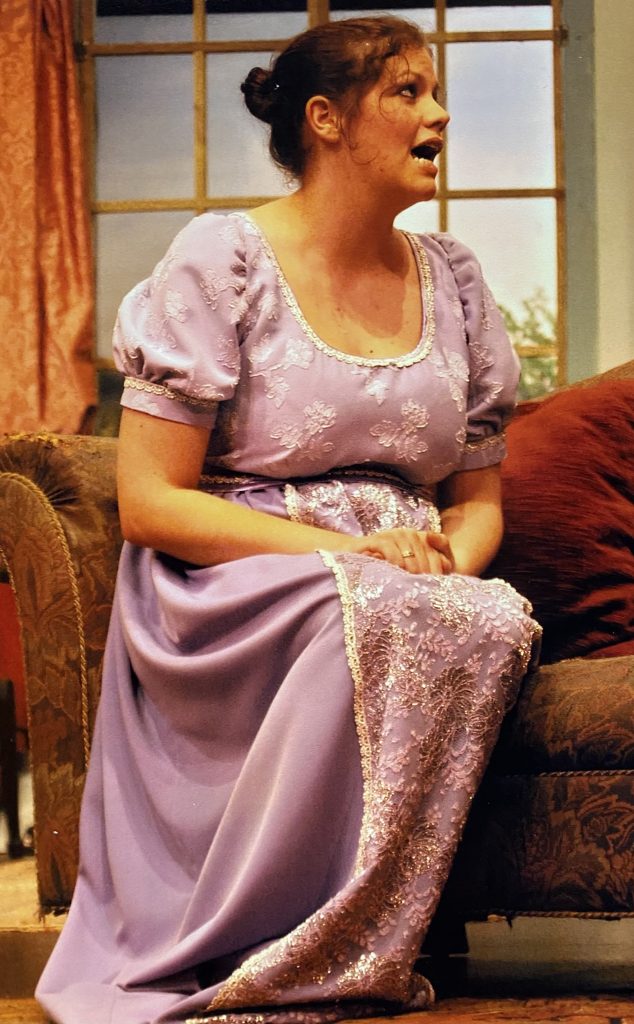
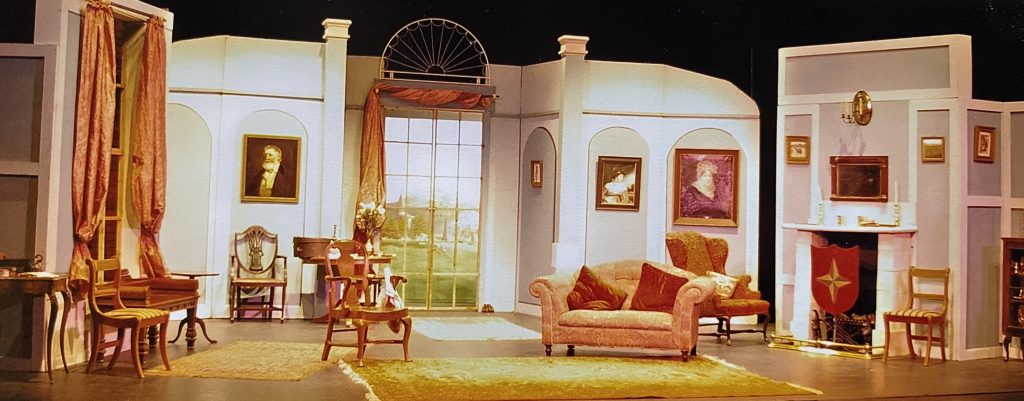
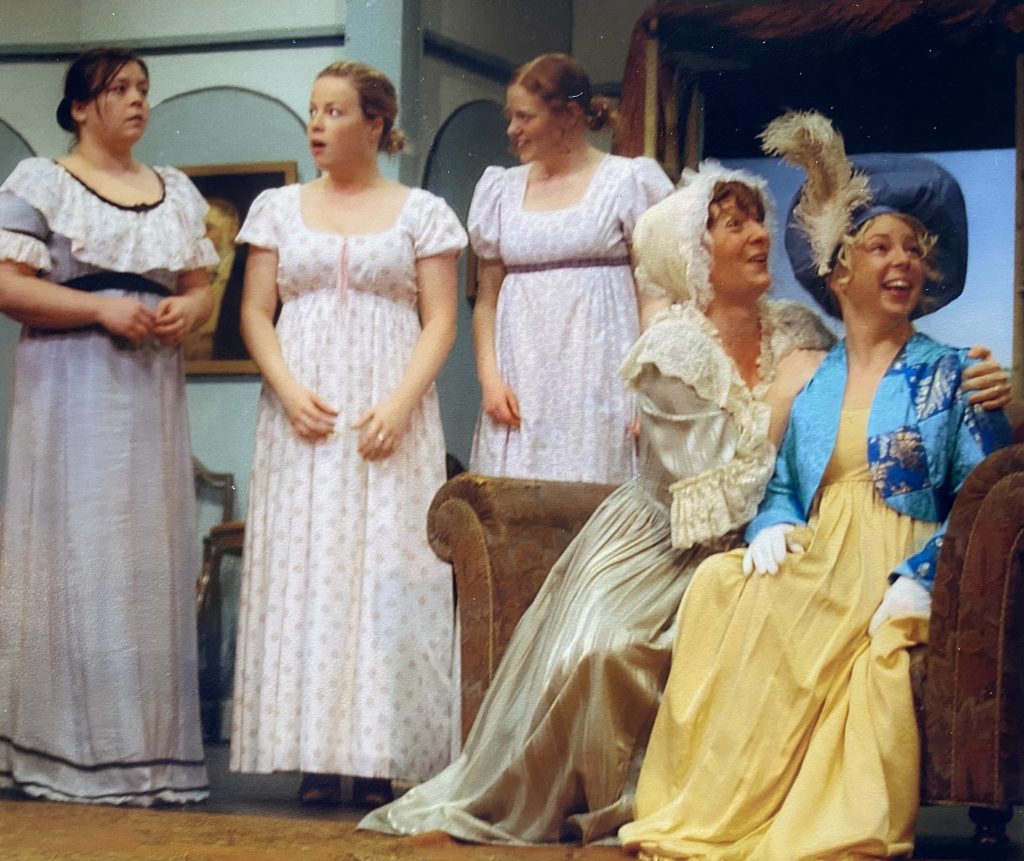
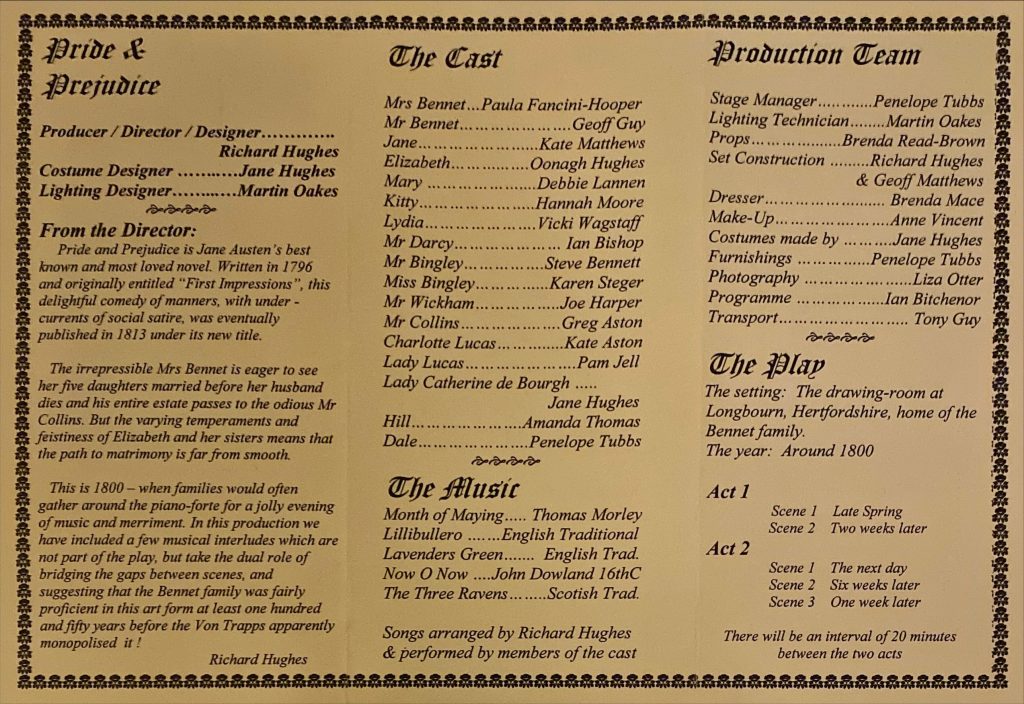
This production was entered into the Gloucestershire Drama Association Full Length Play Competition 2007/8.
It won: Best Production
And was nominated for: Best Set, Best Costume, Best Supporting Actress (Jane Hughes), Best Actress (Paula Fancini-Hooper), Best Actor (Geoff Guy), Champagne Moment (Lydia and Kitty’s reaction to the arrival of Mr Bingley and Mr Darcy), and Best Play.
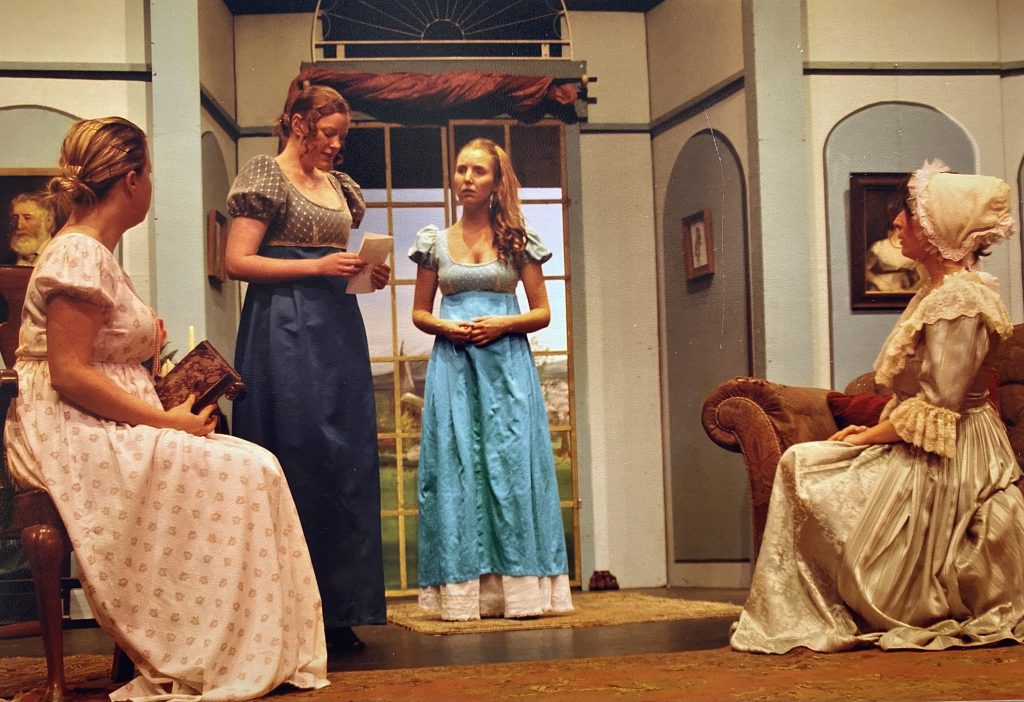
The cast all performed with confidence and ease, and were a pleasure to work with.
Richard Hughes, Director
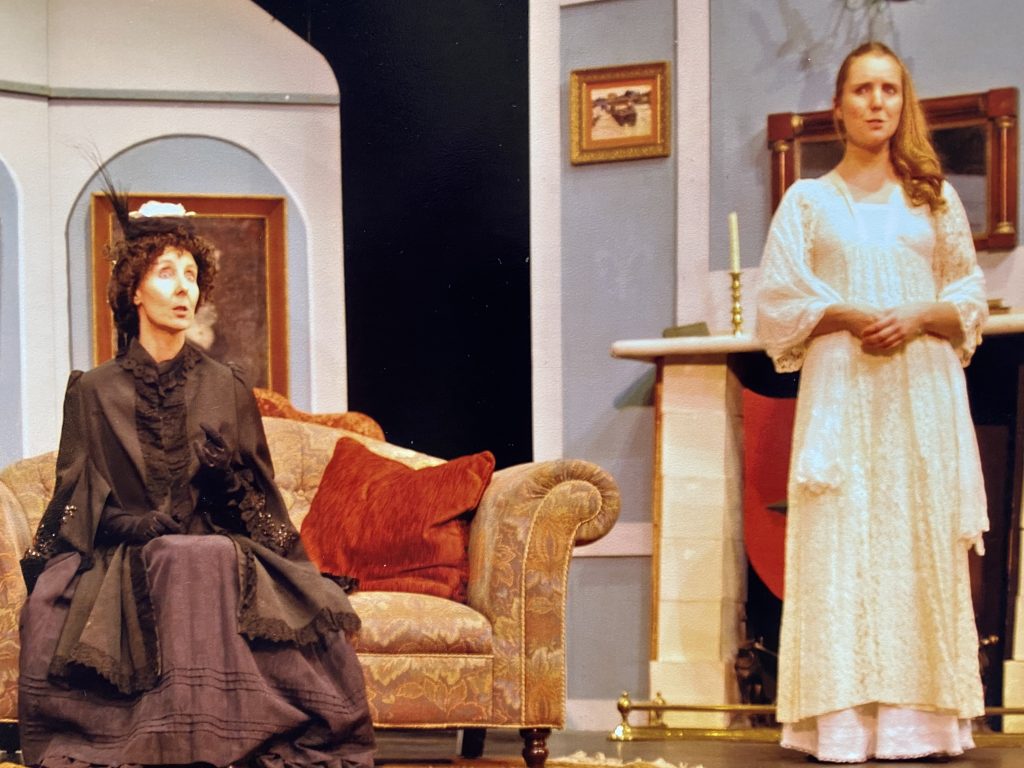
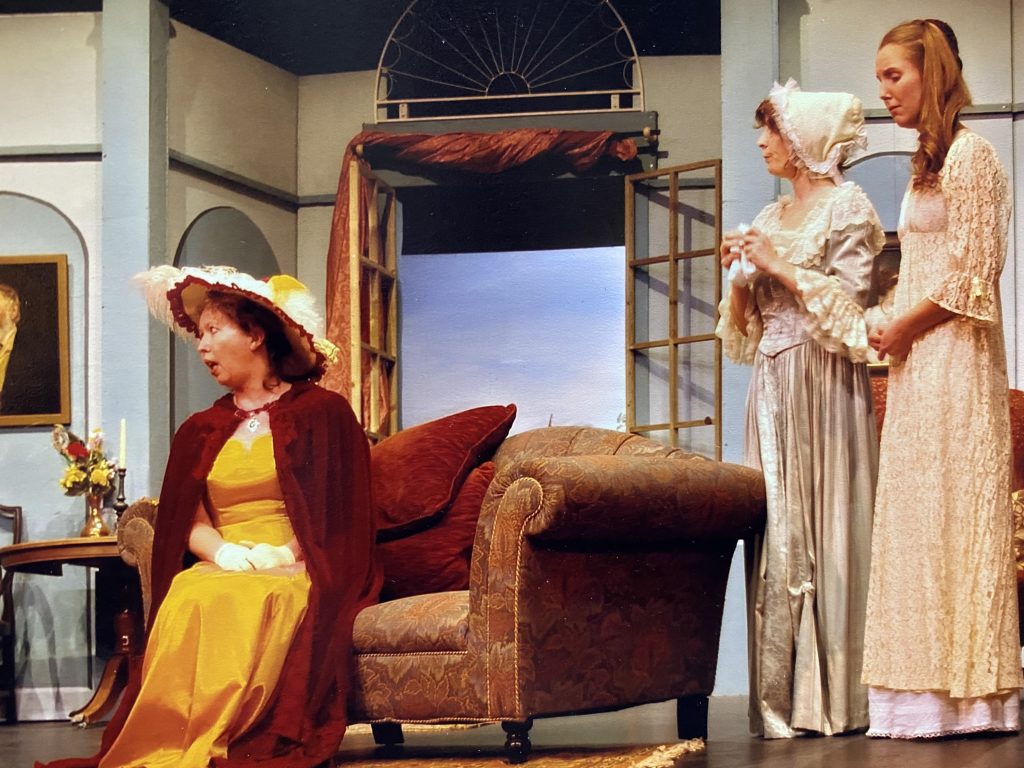
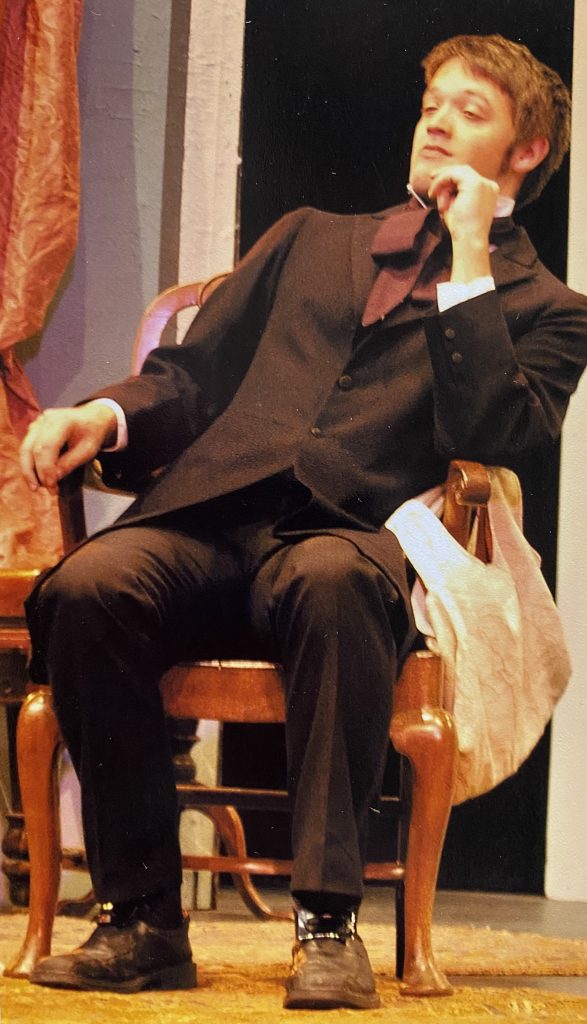
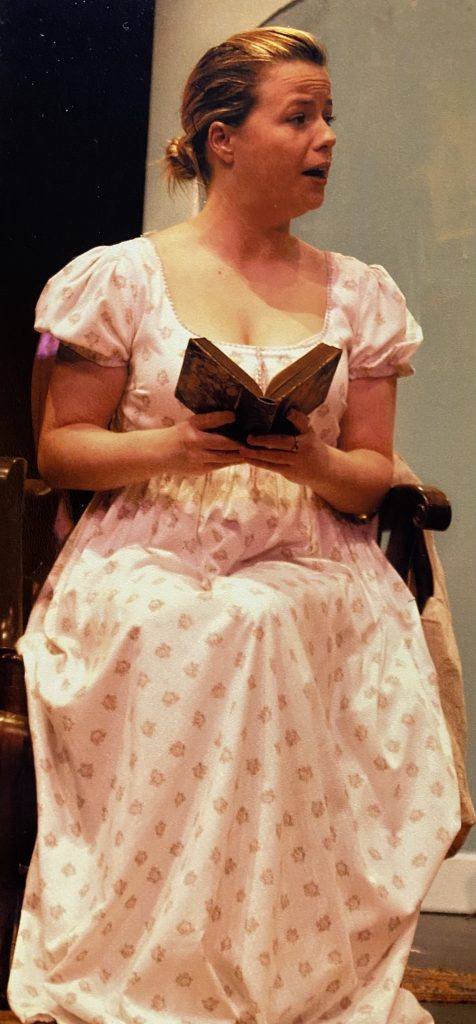
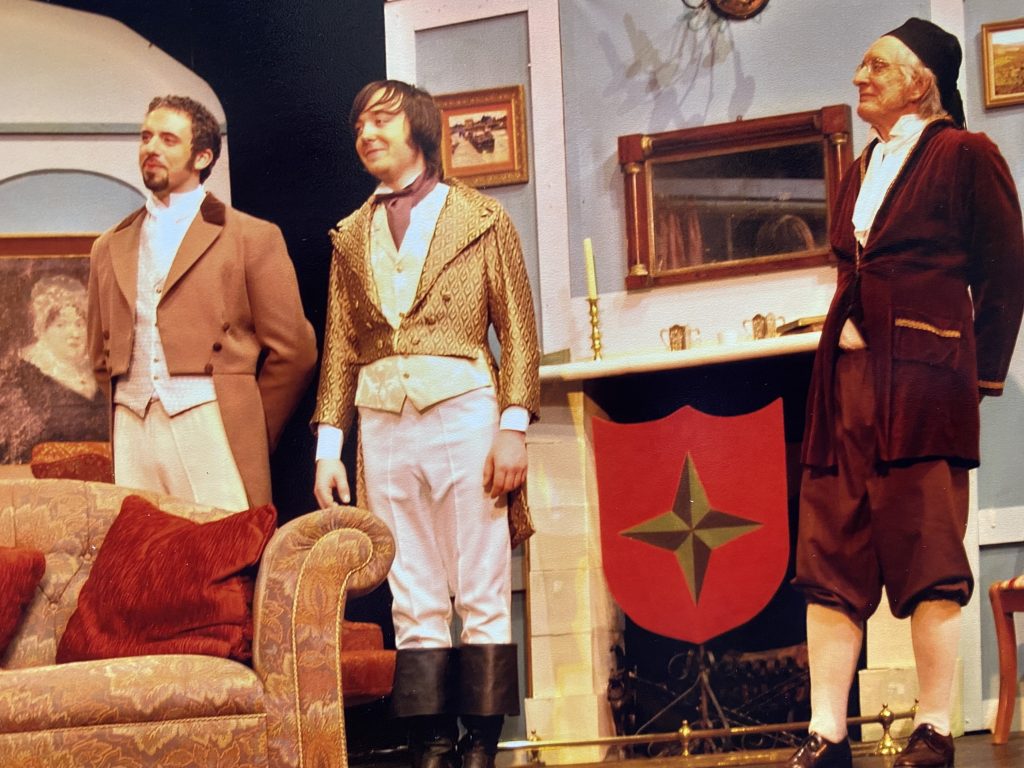
I’m so grateful to have had the opportunity to play such an iconic character, and with such a talented cast. Every single person in this production was excellent and we had so much fun during rehearsals and the run. People still remind me of this production as being the best amateur play that they’ve ever seen! I remember it with extremely fond memories.
Oonagh Hughes as Elizabeth Bennet
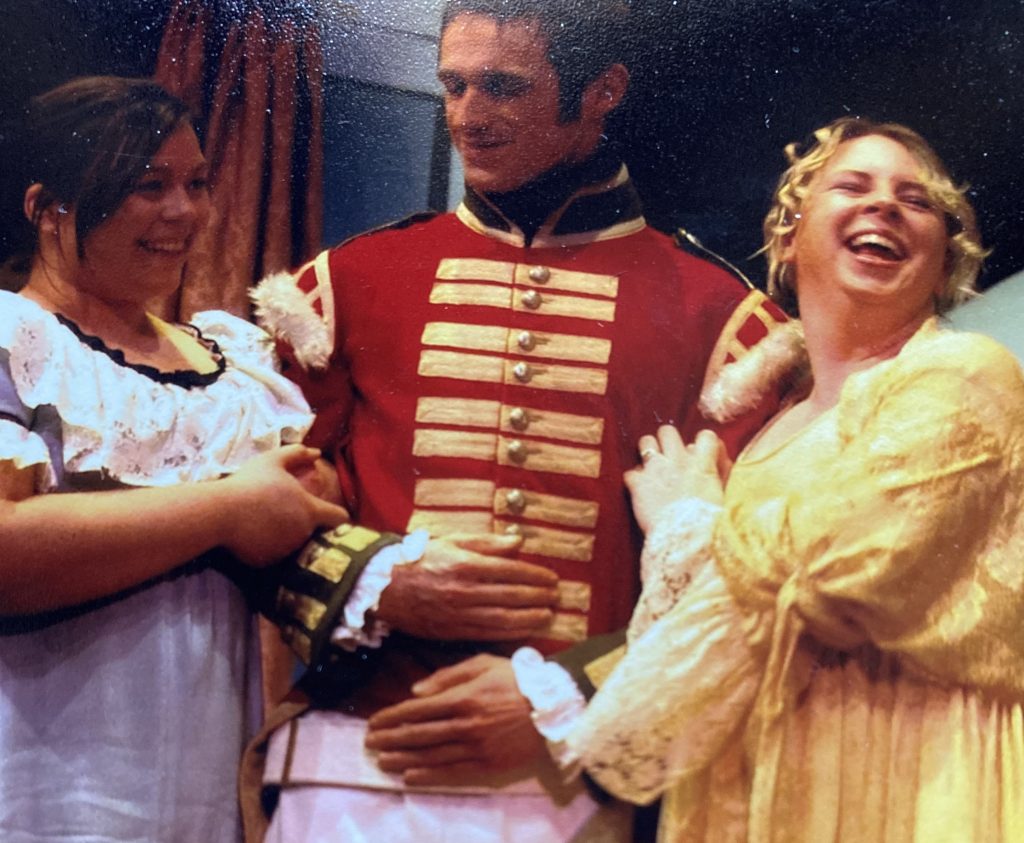
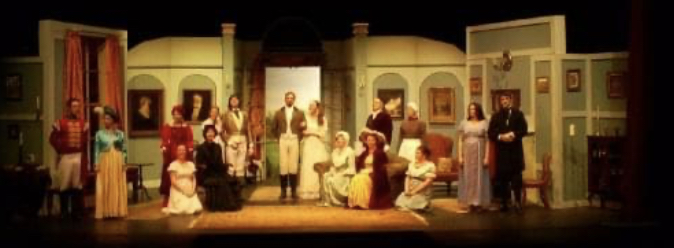
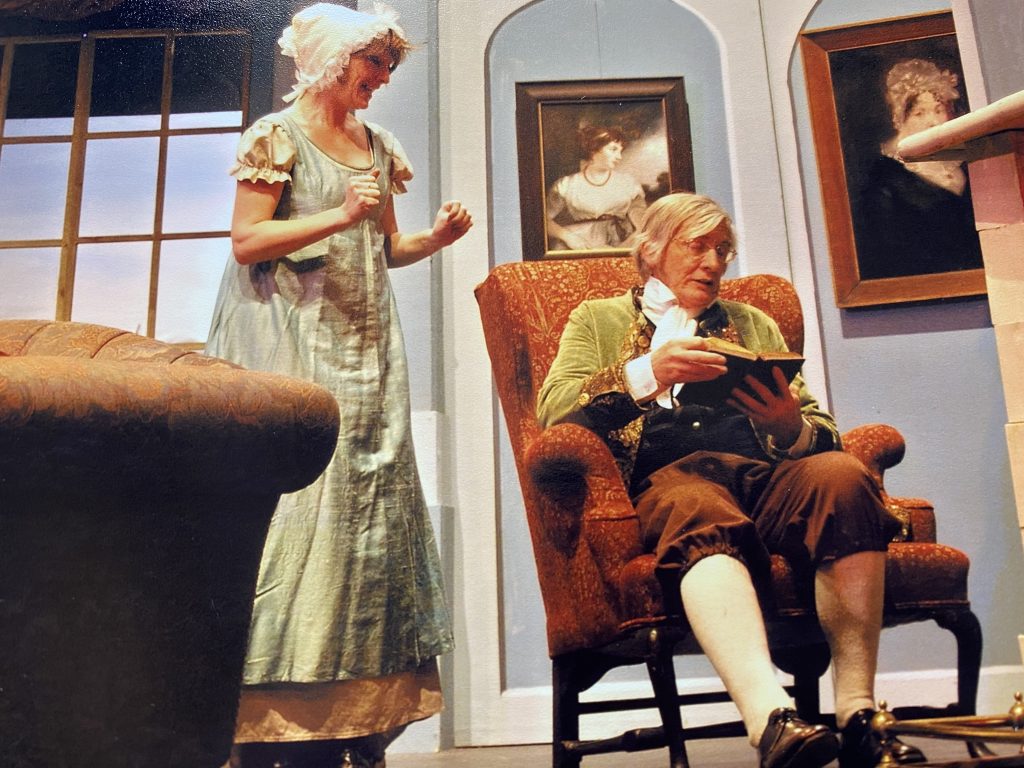
GDA Full Length Play Competition
Full Adjudication:
Firstly, thank you for the warm welcome to this production. We were greeted at the door, provided with programmes and refreshments and generally made to feel at home. It was good to see a capacity audience enjoying this successful production.
Pride and Prejudice is a favourite of English fiction and one sensed in the audience a familiarity with the story and an affection for it. It is not easy to adapt a great novel for the stage without loss, but this version, by preserving. Austen’s dialogue, very successfully conveyed the characters and tone of the original, and much of the plot. The fact that the stage version is set entirely in the Bennet’s house at Longbourne meant that some important elements of the novel had to be dealt with reportedly – such as the Netherfield ball or omitted altogether, as was the case with Elizabeth’s important chance meeting with Darcy when she is visiting Pemberley. Consequently, some of the subtlety of Elizabeth’s changing feelings for Darcy was lost, and we did not quite get the full sense of the grandness of Elizabeth’s future married life. The decision to allow the audience to see the Longbourne set before the production started successfully allowed the audience to get a sense of the manner in which the Bennets lived. The set made good use of the large stage and provided plenty of scope for the director to work with the dramatic action of the play. The decision to dispense with doors stage left and right was an excellent one which allowed the action to proceed purposefully without the hindrance of openings and closings. The French doors and view of the garden upstage centre gave a strong sense of depth and provided an effective visual location for all those walks around the garden. The tendency for the doors to swing open might have been avoided. The quality of performance and direction was strong throughout. All members of the cast were confident in delivery and this sureness with lines allowed the director to get the pace and timing just right. There was a strong sense of teamwork and evidence that the cast had worked hard in rehearsal. Scenes such as Darcy’s first proposal to Ellzabeth and Elizabeth’s encounter with Lady Catherine – that great triumph of Intelligence over class! – were splendid examples of measured and controlled acting. And there were many more, too.
The production very successfully brought out the humour and irony of Austen’s dialogue. Kitty and Lydia were an excellent comic double act in a way that was just right: their excitement at the French doors at the arrival of Bingley and Darcy and Kitty’s reaction to Lydia’s invitation to stay with her aunt and uncle hit exactly the right comic note. Also very successfully conveyed was the humour in Mr Bennet’s slightly resigned, wearied, Ironical reactions to his wife and daughters. His dry jokes about his wife’s nerves and about Elizabeth’s future family relationships should she choose to marry Mr Collins were given just the right degree of emphasis. And Mrs Bennet hit exactly the right note throughout: alert to the comedy of the role, but never overdone, and a performance, in fact, that was pivotal to the success of the whole production. There were occasional moments when the humor of the production seemed excessive. I wondered whether Mr Bingley – perhaps not helped by the hairstyle – needed a little more dignity than was conveyed in his grinning, little-boyish infatuation with Jane. The humour of Mr Collins’ role came across strongly, but was taken to excess. Collins is funny, but we laugh at him, and his pompous snobbery, his sycophancy, and his social gaucheness are deeply unappealing characteristics. The decision to have Collins fall on top of Elizabeth at the moment of Mrs Bennet’s entrance seemed, for example, a comic gesture too far.
The action of the play was well staged. The director made good use of width and characters were positioned well for dramatic effect.
The decision to place Darcy downstage left for his first scene conveyed well his aloofness and pride, and Mary’s positioning stage right underlined her bookishness. I wondered whether more use could have been made of the upstage centre area. It was most effective, for example, when Jane moved upstage centre to read Miss Bingley’s letter announcing their departure from Netherfield, and the audience was drawn to the expression of shock on her face as the news sunk in. There were other occasions, however, when the dramatic effectiveness of a scene could have been enhanced had the central character been positioned further upstage. Bingley’s invitation to the Netherfield ball and Lydia’s account of her wedding, for example, both had characters positioned downstage who were speaking over their shoulder to those who were standing behind them. On the whole, though, stagecraft was sure and confident.
Costuming was excellent throughout, and very successfully conveyed the difference in social class between the Bennets and their richer neighbours. The dresses worn by the Bennet daughters plain design in varying pastel shades – were well contrasted with Miss Bingley’s darker and more ornate costume. The decision to dress Lady Catherine in black worked well. What an entrance and what a stage presence as she sat there on the sofa in all her unpleasantness! As in many productions, headwear caused a few problems either by masking the face (Charlotte Lucas in her first entrance) or by shadowing the face, as was the case with Lady Lucas’s large-brimmed hat. Hair was well swept back from the face with the exception of the distracting stray locks on either side of Jane’s face.
Although not part of the narrative of the play, the musical interludes were a delight and provided excellent transitions between scenes.
Lighting changes for these scenes very effectively separated them from the action.
As indicated earlier, the standard of performance was a major strength in this show. Mrs Bennet’s was an exceptional
performance, with clarity of delivery and excellent comic timing throughout. Her fussy, self-dramatising, socially embarrassing
character was very well conveyed. Her central role in the scene involving the first arrival of the Bingleys and Darcy was splendid, as was the later scene when she reacts to the news of Lydia’s elopement. It is very easy for roles such as this to topple into self-parody, but this was successfully avoided. The Bennet sisters were superbly cast. You really were fortunate to have five such accomplished actresses of pretty much the right age for these roles, and each one got the role just right. Elizabeth’s intelligence, her compassion for Jane, her tolerance of her mother and – importantly – her special relationship with her father all came across well, The big set pieces – her reactions to the three proposals of marriage (Collins and the two from Darcy) and the scene with Lady Catherine were all convincingly done. Though a less interesting role, Jane’s performance was good, too. The disappointment at Bingley’s departure and her continuing sorrow were well conveyed. As previously suggested, Kitty and Lydia got it just right. Though a smaller role, Mary’s bookish piety came across well during the scene when she lectures the family about Lydia’s elopement. As well as his success in conveying the comic irony of the part, Mr Bennet’s character was strongly realised. His slow movement and slightly defeated demeanor successfully conveyed his resigned reaction to the silliness of his wife and her ambitions for their daughters. Darcy’s pride and aloofness came across well, and his reaction to being rejected by Elizabeth struck just the right note of hurt pride. Charlotte Lucas was also well-performed: less sparkling than her friend Elizabeth, her quiet dignity in explaining her engagement to Collins was convincingly done. Miss Bingley’s snobbery came across well, as did Lady Lucas’s rivalry with Mrs Bennet. Wickham was convincing, too. Praise in no small part needs to go to the actress playing Lady Catherine. She spends three quarters of the production sitting around waiting to go on to do one big scene, arguably the most famous scene in the story. Get that wrong and the audience leaves disappointed. This character looked formidable, and demeanor and expression perfectly complemented the controlled anger of the dialogue. Well done, too, to recognise that stillness can be as dramatically effective as movement.
Congratulations on an excellent production which was warmly received by its audience.
Robert Penman, adjudicator.
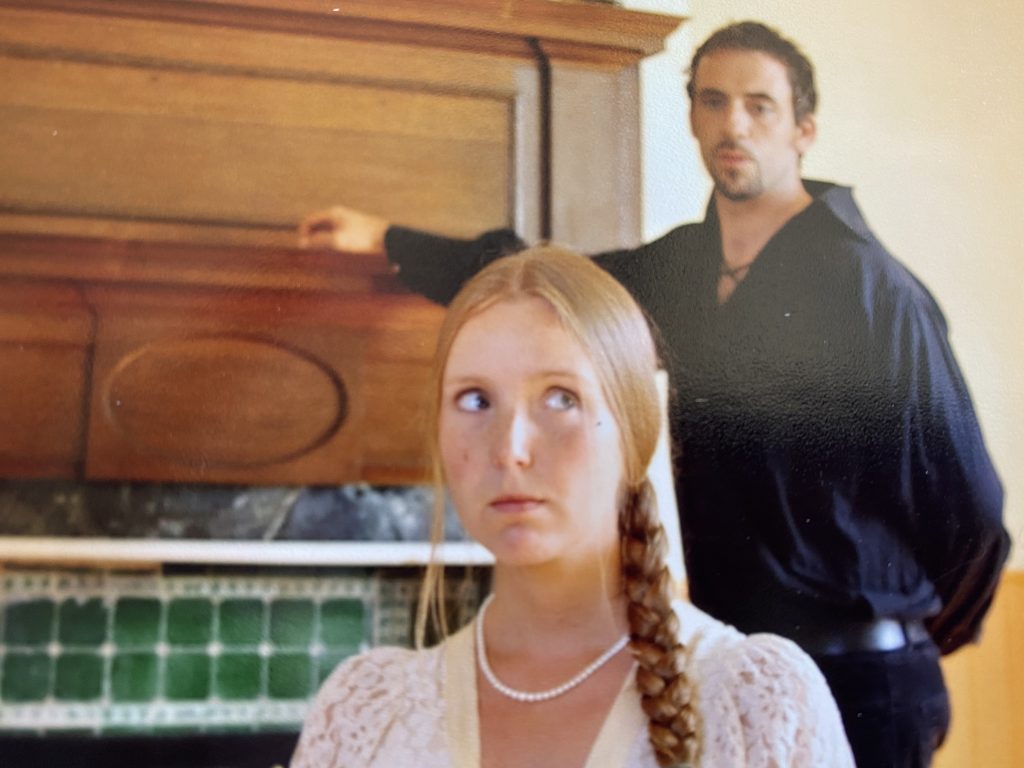

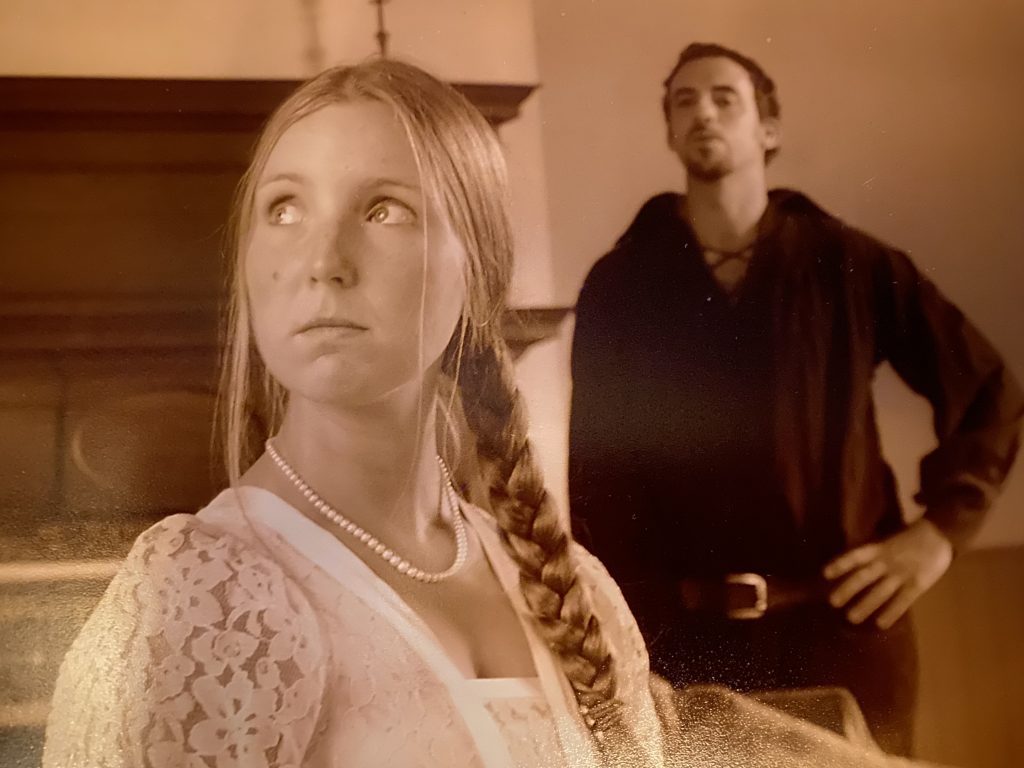
From Gloucestershire Echo website:
PRIDE AND PREJUDICE – THE ROSES, TEWKESBURY
There is nothing amateur about Tewkesbury Amateur Dramatic Society.
Their latest performance of Pride and Prejudice was superb. A young cast portrayed Jane Austen’s best known novel with competency, class and elegance.
The gentle humour was perfectly pitched and the aching longing for love not at all overstated.
Each character was notable and made quite an impression in their own right no matter how short their appearance on stage. By example Jane Hughes, as Lady Catherine de Bourgh in her five minutes on stage, was arresting and strikingly commanding. While the eccentric Mr Collins, played by Greg Aston, was hilarious in his brief moments in the spotlight with his fumbling, bowing and scrapping.
Adding musical interludes between scenes was an endearing touch which made the scene changes smoother and less noticeable.
The scenery of the set itself was an impressive affair. No detail was overlooked, the glass cabinet was full of ornaments, candles adorned the room, large oil paintings graced the back wall, old fashioned carpets and the painted garden complete with potted plants was realistic.
With a cast so strong it was a challenge to pick out top performances because they were all so good. But Paula Fancini-Hooper hung the show together with her nerve ridden, dramatic Mrs Bennet, overwrought with getting her five daughters married. While her long suffering husband, played by Geoff Guy, drew a lot of humour with his subtle glances and weary tone. And Vicki Wagstaff, as spirited, troublesome Lydia, was a delight.
Emma Luther
